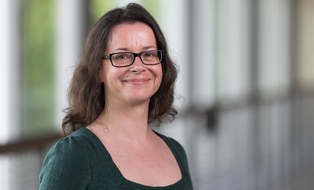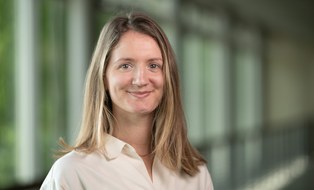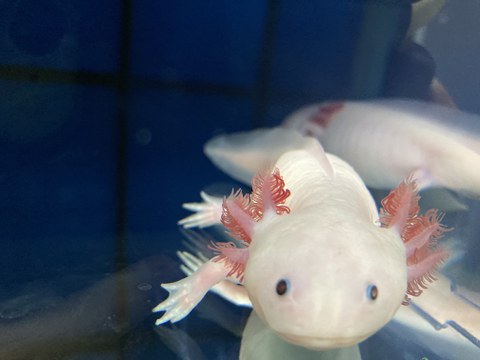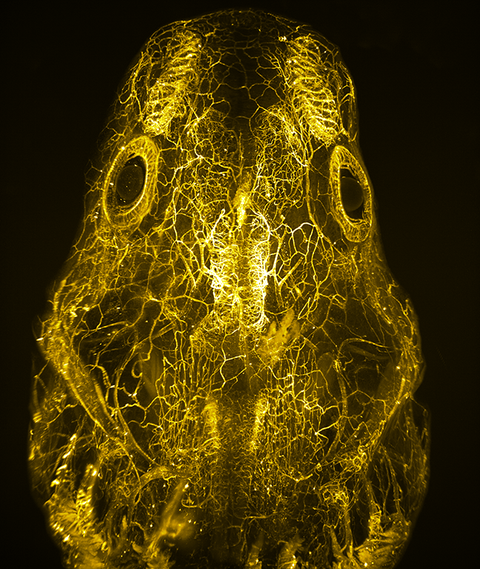Dr. Maximina Yun: Interdisciplinary exploration of de novo thymus regeneration
Applicant: Dr. Maximina Yun, Center for Regenerative Therapies Dresden, CMCB | Central Academic Unit
Period: 2020
Participating partners: Ass. Prof. Rene Maehr, PhD, University of Massachussetts, Worcester, USA
Axolotls are fascinating creatures that can regenerate not only limbs, but also an entire organ such as the thymus. This observation in Dr. Maximina Yun's laboratory at the CRTD was the first step towards initiating an international research collaboration with Prof. Rene Maehr's team from the University of Massachusetts, USA.
The thymus is essential to the human adaptive immune system because it trains T-cells to deal with pathogens and tumors. Unfortunately, the human thymus begins shrinking as early as during puberty, which can lead to a weakened immune response and reduced tumor control in the long term. Understanding the axolotl's ability to fully regenerate the thymus could lead to new therapeutic approaches for treating thymic disorders and degenerative thymus processes in humans.
The seed funding provided by the funding program internationalization allowed Dr. Yun's team to collaborate with Prof. Maehr, a thymus biology expert, in order to collect initial data. Despite pandemic-related restrictions that cancelled plans to make mutual laboratory visits, central laboratory experiments were possible. These findings formed the basis for a successful DFG third-party funding application, enabling further research in this field from 2021 to 2024. The results of the joint research project have been submitted to a renowned scientific journal and are currently under review. They have also been presented at several important conferences, including the Aging Cell Inaugural Conference in Edinburgh, UK (July 2024); the 4th Nordic Meeting on Development, Stem Cells and Regeneration in Norway (June 2024); the EMBO Developmental Circuits in Aging in France (April 2024); and the EMBO Tissue Repair and Regeneration in Spain (September 2022).
In our best practice questionnaire, we asked Dr. Yun what strengths TU Dresden has that actively influence the establishment and expansion of international collaborations:
„I think the internationalisation fund is certainly a great instrument for supporting the effective set up of long-lasting collaborations. Usually scientists discuss great ideas, but at the end they need seed funds to materialise them. As these days the application to large grants requires extensive preliminary data, seed funds are essential. Further, without these it is difficult to promote cross-training of staff and proper, in person exchanges.
Another great instrument is the establishment of joint IRTGs, as well as the University level agreements between strong international universities fostering staff and student exchanges. TUD is strong in this regard.“
We were also interested in learning about Dr. Yun's personal experience with internationalization:
„Internationalization is at the core of research, as exposure to different environments, approaches and scientific cultures enriches our own work. Further, modern research necesitates interdisciplinary approaches which are often only possible through multinational collaborations. Further, it is critical for the training and exposure of early career researchers. Mobility is a must in science!“
Due to its outstanding scientific achievements, the project was selected as best practice example of the funding program internationalization. The project was chosen because of its targeted development of an international research cooperation in one of TU Dresden's central research profile lines (health sciences, biomedicine, and bioengineering), combined with successful third-party funding applications, scientific visibility, and the active involvement and promotion of young scientists.
Contact
 © Sven Ellger/TUD
© Sven Ellger/TUD
Coordinator
NameDaniela Mohrich
International Funding Programmes
Send encrypted email via the SecureMail portal (for TUD external users only).
International Office
International Office
Visiting address:
Fritz Foerster Bau, Office 167 Mommsenstraße 6
01069 Dresden
Postal address:
TUD Dresden University of Technology International Office
01062 Dresden
 © Sven Ellger/TUD
© Sven Ellger/TUD
Research Assistant
NameHelene Herwig
Send encrypted email via the SecureMail portal (for TUD external users only).
International Office
International Office
Visiting address:
Fritz Foerster Bau, Office 167 Mommsenstraße 6
01069 Dresden
Postal address:
TUD Dresden University of Technology International Office
01062 Dresden


